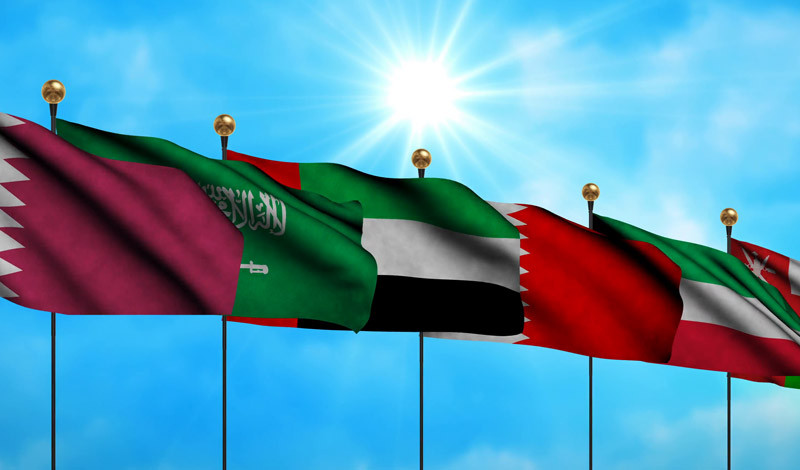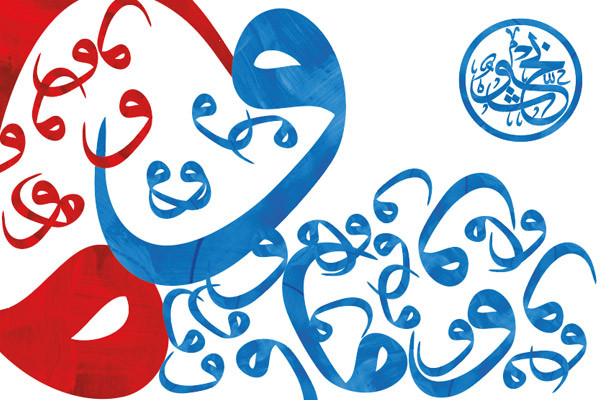A New Alliance in the Gulf: Wither the GCC
Last week’s announcement of a new economic and strategic partnership between the United Arab Emirates and Saudi Arabia just hours before this year’s

- by Angus Taverner ,
- Wednesday, 3rd January, 2018
Last week’s announcement of a new economic and strategic partnership between the United Arab Emirates and Saudi Arabia just hours before this year’s summit meeting of the Gulf Co-operation Council (GCC), has attracted widespread interest amongst commentators and analysts alike, seeking to distil the meaning and potential significance of this new alignment.
Given the timing of the announcement, most observers have been swift to conclude that the new, bilateral partnership, manifested in the establishment of a ‘Joint Co-operation Committee’, is a move that will further weaken that authority and influence of the GCC. It is also hardly a surprise that most Gulf analysts see the now six-month stand-off with Qatar as the principal motivating force behind the decision. In this context, it is perceived that Qatar, with its immense wealth and strong relations with the likes of Russia, Turkey and Iran, is not feeling much pressure to accede to Saudi and Emirati demands to fall into line with its fellow Gulf states.
There now exists an obvious schism running through the heart of the GCC. And on this basis, it seems that Riyadh and Abu Dhabi have decided that a new strategic and economic entity is required, both to focus the region’s international economic influence and clarify the region’s strategic position – particularly in the context of the challenges posed by Iran.
The leadership of Qatar insists that it is willing to enter negotiations to end the present crisis. Speaking at Qatar’s Consultative Assembly on 14th November, Sheikh Tamim bin Hamad al-Thani declared that the ‘Quartet’ – UAE, Saudi Arabia, Egypt and Bahrain – were “shunning dialogue” and did not want to resolve the present situation. He told his audience: “We mean what we say when we say we are ready for agreements through dialogue based on mutual respect for sovereignty and shared commitments.” Sheikh Tamim bin Hamad’s appearance in Kuwait City last week to participate in the GCC Summit also seemed intended to demonstrate Qatar’s willingness to negotiate and to point the finger of blame at what Qatar continues to call “the siege countries”.
However, Qatar’s efforts to portray itself as a small country being bullied by its intransigent and larger neighbours are belied by its flat refusal to discuss any of the major issues that brought the present crisis to a head last June. Moreover, Qatar continues to work hard to buy influence with traditional Saudi and UAE allies in Europe and the US; well-illustrated by the warm welcome for new defence equipment orders announced this week, from economically pressed governments in both Paris and London.
Far from addressing the important charges of supporting extremism, harbouring Islamist terrorists, and encouraging the spread of political Islamism, it appears that Qatar is instead intent on buying international support and maintaining a veneer of co-operation within the GCC while doing precisely the opposite. Seen from this perspective, it seems hardly surprising that the UAE and Saudi leaderships’ patience has worn thin.
The creation of the new alliance seems to signal that the GCC as a forum for co-operation and mutual support has failed. This has prompted immediate questions about the Council’s future and whether there is any point in Gulf leaders seeking to restore its battered reputation.
Accordingly, for most Gulf analysts, the news of a more formal alliance between Saudi Arabia and the UAE, building on the experience of working in coalition in Yemen, is therefore being seen primarily in terms of a failing GCC and continuing resistance from Qatar to demands for Doha to shift its strategic stance. It is also noteworthy that the new alliance has been given life in the form of a ‘Joint Co-operation Committee’ – that word “co-operation” having signally failed in the context of the GCC.
So, the new alliance probably needs to be understood from several different but linked perspectives. It reflects the likelihood that the stand-off between Saudi Arabia and the UAE on one side, and Qatar on the other is likely to continue for some time to come. Combined with the immediate failure of last week’s GCC summit, the move also suggests that Riyadh and Abu Dhabi are not prepared to compromise with Doha, and that the principal Gulf states would rather see Qatar isolated from its Gulf neighbours than ceding further ground to Islamism and extremism.
The new Saudi-UAE axis could also provide the basis for a new Co-operation Council – possibly not one restricted solely to the Arabian Gulf. Some analysts have already suggested that Bahrain is likely to be invited to join the alliance. Others foresee the inclusion of other states including Egypt and Jordan which continue to be allied with Saudi and the UAE. Such an alliance would enable improved military and strategic co-operation and coordination. It might also enable the kind of permanent integrated military structure that the GCC has long aspired to but failed to realise.
In the context of the existing GCC, the future involvement of Kuwait and Oman in the new UAE-Saudi alliance remains less clear. Many commentators last week suggested that HH Sheikh Sabah al-Ahmad al-Sabah, Kuwait’s Emir, felt snubbed and slighted, not only by the announcement of the new alliance just ahead of a summit that he had publicly hoped would see “wisdom prevail”, but also because the senior leadership of both UAE and Saudi stayed away. Kuwaiti pride has been dented but can probably be overcome. While for Oman the new alliance probably offers HM Sultan Qaboos the opportunity to remain standing more comfortably aside from the increasing chill in cross-Gulf relations with Iran.
While the announcement of the new Saudi-UAE alliance may only have served to crystallise and indeed formalise the prevailing axis of power within the Gulf states, it has also signalled that the stand-off with Qatar is likely to continue for some time, with neither side seemingly willing to make the compromises that future agreement will require. International observers are also pointing out that the ‘Gulf Co-operation Council’ is no longer co-operating. Accordingly, while it seems likely to remain in being – at least in name – the reality is that the GCC is broken. If it is to survive at all, it is almost certainly as an overhauled alliance built on a base of UAE-Saudi alignment.

Angus Taverner
(Director Global Affairs Division) (former)

